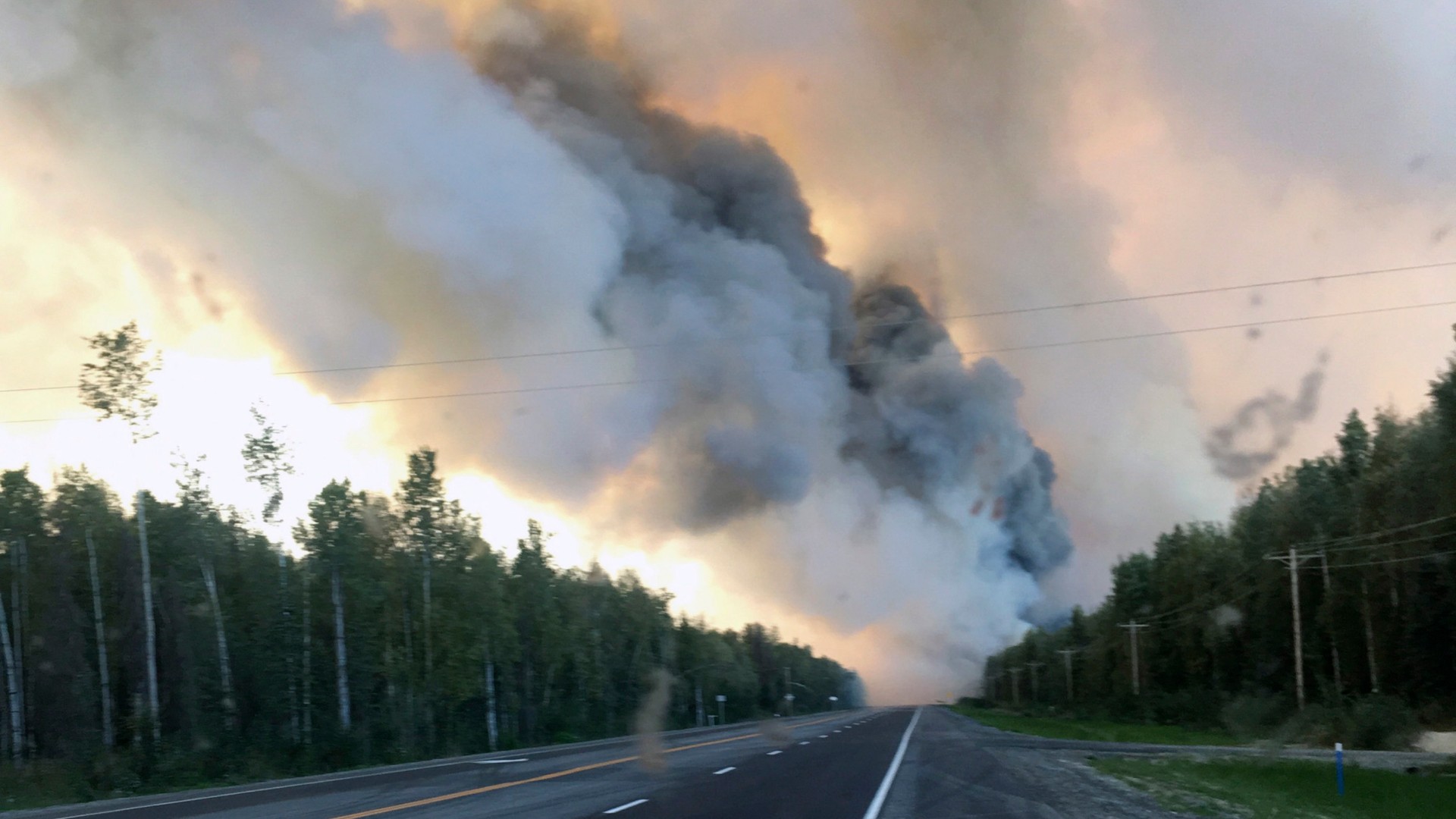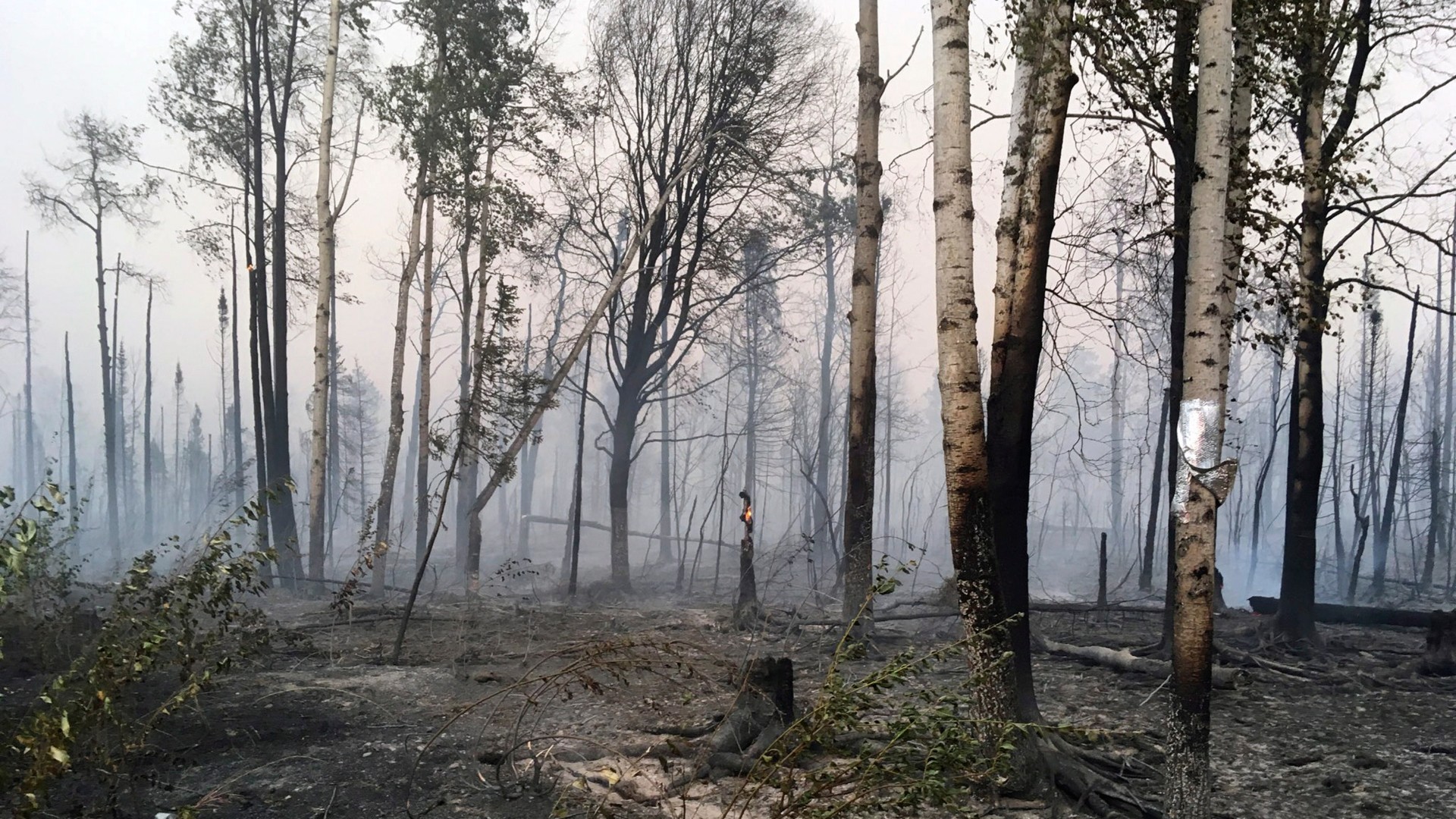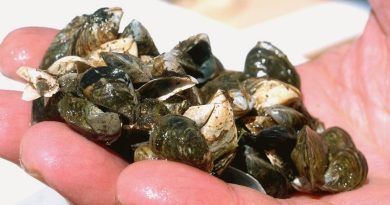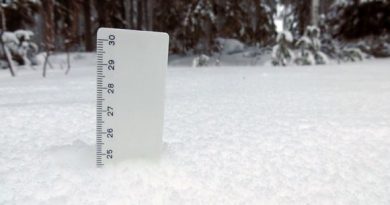A breakdown of wildfires raging in southcentral Alaska

Major wildfires continued to burn north and south of Anchorage Monday, threatening property and major infrastructure, snarling highway travel and filling the skies with smoke.
An estimated 50 structures burned in the Matanuska-Susitna Borough, triggering evacuations north of Willow. Diminishing winds have helped crews fighting the blazes, but none of the impacted regions expect to see rainfall in the next few days.
Here is a breakdown of what’s happening and what we know.
- The McKinley Fire is the most destructive blaze. As of 9 a.m. Monday, the Division of Forestry wrote that “at least 50 structures have been lost.” Public Information Officer John See said at a press conference shortly after noon that the blaze is estimated at 3,000 acres, with crews trying to contain “active fire on both sides of the Parks Highway between miles 82 to 91.”
- Traffic is moving down the Parks Highway, but extremely slowly. Pilot cars are taking around 50 vehicles at a time between mileposts 71 and 99, but Forestry cautions, “There is zero visibility along the road in the fire area and motorists should expect long delays.” Throughout the morning, Facebook users have posted photos of traffic backed up for miles down the highway. Fire managers have left an evacuation order in place, restricting people from re-entering the area. State investigators are working with the Red Cross to get accurate assessments on what structures have burned.
- On the Kenai Peninsula, the Sterling Highway re-opened at noon to traffic in both directions, but it was moving very slowly. Over the weekend, the Swan Lake Fire was kicked back up by high winds, ultimately pushing flames across the highway by mile 70 and burning south toward Skilak Lake Road. Diminishing winds Sunday gave fire managers the ability to use aviation resources that had been grounded by the gales, giving them more tools to combat the blaze. Cooper Landing has been warned to be prepared to evacuate.
- The North Fork Fire, about six miles northwest of Homer, was estimated to be between 25 and 30 acres Monday. It is located between the North Fork Road and Diamond Ridge Road, about one and a half miles east of mile 164 on the Sterling Highway. A 15-person crew arrived to fight the fire Sunday. According to Forestry, no structures are immediately threatened. Some residents near the North Fork Road and communities along the Diamond Ridge Road south of the fire have been told they must prepare to leave if necessary.
- About 15 miles south of the McKinley Fire, the Deshka Landing Fire had spread to 1,800 acres as of Monday morning, according to Forestry. At that time, there were over 100 personnel on the fire, and more crews are anticipated to arrive from the Lower 48. They are working to protect about 45 cabins on Red Shirt Lake. Air tankers are dropping retardant along the fire’s perimeter, and helicopters are being used for water drops and to carry crews to the fire’s location.
- More assets for battling the blazes are en route including 10 Hotshot crews, two air-tankers and four water-scooping aircraft.
Evacuees share their experience
Over 60 people were using the evacuation center set up at the Menard Sports Complex in Wasilla Monday. Many stayed in vehicles or RV’s. Cots are set up in the facility’s gymnasium, along with a dining area and play space for children.
Shelle Moseley slept in her truck in the parking lot outside the sports complex, which is set up as the emergency shelter for people on the south side of the McKinley Fire. She shared her truck with her two dogs, two cats and two pigeons.
“We had fire on both sides there on the Parks Highway,” Moseley said of her trip down from the Caswell Lake area.
“I’ve been through a lot up here, born and raised Alaskan, that was an experience coming down that highway,” she said. “Trees just ablaze. Smoke so heavy you could only follow the tail lights of the truck or car ahead of you.”

Jon Gillespie first evacuated to Wasilla from a subdivision around Caswell Lake on Saturday night. He returned home, then evacuated again on Sunday.
“We packed up our basic camping supplies — our camping gear, sleeping bags, our money, our two dogs — anything valuable,” Gillespie said. “We weren’t able to grab any sentimental stuff because we have a small vehicle.”
Gillespie’s two dogs were tethered to his PT Cruiser.
“It’s sort of stressful, I’ll admit,” said Gillespie, who evacuated once already this summer from a wildfire threat. “It’s pretty annoying. We’ve got our packing skills down.”
“The biggest question is: how is my home?” said Ken Everson with the Red Cross at the evacuation center. “If we can get those questions answered, it would relieve a lot of people’s of anxiety.”
According to Everson, the majority of people staying at the sports complex don’t know what’s happening with their homes.
“Right now, there is very little information that is getting down to us,” Everson said. “We can’t pass anything on because we don’t know.”
Mat-Su Borough Assembly member Tam Boeve, who represents the area where the fire is burning, said her daughters both work in emergency response, “and we’ve got things going in 12 directions at the moment, trying to keep the sprinkler on our own home.”
The fire damaged communications infrastructure, and Boeve said there were problems with cell coverage mid-day Monday. It’s been hard for her constituents both to access their homes to collect their belongings, and to get information about the fire and which buildings have burned, she added.
“It’ll take us a while to figure out what was actual there and what isn’t there now,” she said. “We’ve hardly begun that part yet.”
Monday afternoon, Rocky Brown sat in traffic on the Parks Highway heading north. Brown owns a cabin around mile 91.
“What we know right now is the possibility that everything over there is a total loss,” Brown said. “But we don’t know, we haven’t been over there yet.”
Brown says he was in the area helping a neighbor on Sunday, but evacuated when the fire grew.
“There were a bunch of rabbits and birds there in the trail,” Brown said. “I was like ‘wow, this is really weird.’ It was really smoky and I looked back. I couldn’t see the flames but I could hear them crackling and then I walked back to the house, and as soon as I got to the house I was like ‘we’re going to have to go.’ The flames came through, and I mean they were 60 feet tall.”
Reporting was contributed by Elizabeth Harball in Wasilla, and Abbey Collins and Nat Herz in Anchorage.
Related stories from around the North:
Canada: Large wildfires in Yukon, northwestern Canada threaten highway, CBC News
Iceland: Better wildfire & agriculture management among recommendations from Arctic Council black carbon expert group, Eye on the Arctic
Norway: Arctic summer 2019: record heat, dramatic ice loss and raging wildfires, The Independent Barents Observer
Russia: 2019 Arctic wildfire season ‘unprecedented’ say experts, The Independent Barents Observer
Sweden: Study on Swedish wildfires shows how to make forests rise from the ashes, Radio Sweden
United States: Southcentral Alaska wildfire: evacuations, burnt structures and highway closures Alaska Public Media



